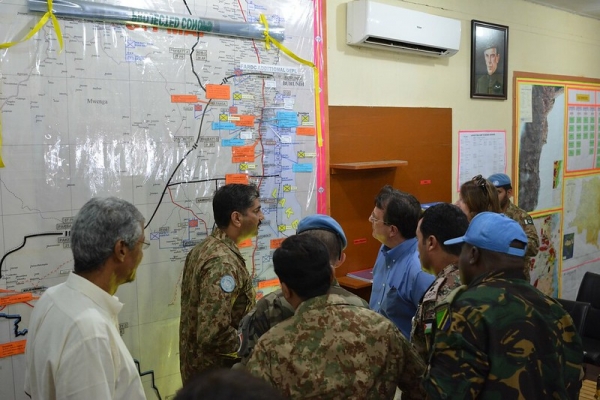The judicial situation in Goma, the capital of the Democratic Republic of Congo (DRC), is complicated by the presence of two significant challenges: corruption and political influence. The paucity of resources results in an overburdened system, in which a considerable number of individuals are detained while awaiting processing. Moreover, the Goma province is subject to military rule of law, with military courts frequently adjudicating cases involving civilians. This practice is incongruous with the norms of civil law It has been precisely one year since the Congolese security forces perpetrated the killing of 57 individuals in Goma. A recent investigation conducted by the United Nations and Human Rights Watch has revealed that the actual number of deaths was even higher than previously reported. The incident occurred on August 20, 2023, and the majority of the casualties were members of a mystical religious group known as the Natural Judaic and Messianic Faith Towards the Nations (Foi Naturelle Judaique et Messianique vers les Nations). The sect, locally known as "Wazalendo," incorporates elements of Christian, Judaic, and animist beliefs.
On August 30, 2023, a number of the group's members were engaged in the organization of a protest against the United Nations Stabilization Mission in the Democratic Republic of the Congo (MONUSCO). This action was undertaken in response to the decision of the group's leader, Ephraim Bisimwa, which was taken on July 30. The impetus for this action was the inability of MONUSCO to successfully halt the ongoing armed conflict in the eastern region of the country. The mayor of the city, Colonel Faustin Napenda Kapend, prohibited the demonstration. Bisimwa subsequently called off the protest. Nevertheless, military personnel conducted an incursion into a radio station with alleged ties to the group. Bisimwa, the group's leader, was present at the station and was able to alert his followers. Upon arrival to provide support, the soldiers opened fire, killing six members before apprehending Bisimwa and a colleague and transporting them to a military base. There, they were subjected to physical abuse and mistreatment on the grounds that they had been "infiltrated by M23," as the Security Council report asserts. The Rwanda-backed M23 rebels have been identified as the perpetrators of atrocities within the country. At approximately 7 a.m., military forces, including members of the Republican Guard under the command of Colonel Mike Mikombe, proceeded to encircle the temple. Despite the initial negotiations, the situation rapidly deteriorated. Witnesses attested that Mikombe directed his troops to open fire on the unarmed populace, resulting in numerous fatalities and injuries. The civilian population sought refuge in nearby houses and the temple, but these attempts were unsuccessful.
A military tribunal was convened to prosecute Mikombe and five other soldiers for their involvement in the Goma massacre. Three of the soldiers were sentenced to ten years' imprisonment, while two, including Mikombe's deputy, were acquitted. On October 2, Mikombe was convicted of murder and sentenced to death. The trial did not examine the potential involvement of higher-ranking officers who may have been responsible for the orders, nor was the investigation into the incident as thorough as it could have been, resulting in a lack of credibility. In contrast, members of the Wazalendo were tried for responding to the fire and sentenced to ten years' imprisonment. The United Nations has stated that the trial was not entirely fair, as no evidence was presented to defend the accused.
Human Rights Watch has called on the authorities in the Democratic Republic of Congo to implement an effective investigation system regarding security forces personnel. Moreover, the families of the victims were not provided with any form of compensation, which is a matter that requires improvement.
To read more, visit:
- https://www.hrw.org/world-report/2023/country-chapters/democratic-republic-congo
- https://www.hrw.org/news/2024/08/30/dr-congo-little-justice-goma-massacre-victims
- https://documents.un.org/doc/undoc/gen/n23/364/37/pdf/n2336437.pdf







